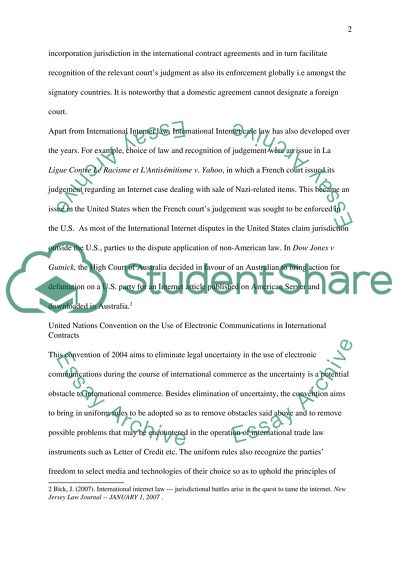Cite this document
(“Internet and International Commercial Law Dissertation”, n.d.)
Retrieved from https://studentshare.org/law/1412426-role-of-international-commercial-arbitration-in
Retrieved from https://studentshare.org/law/1412426-role-of-international-commercial-arbitration-in
(Internet and International Commercial Law Dissertation)
https://studentshare.org/law/1412426-role-of-international-commercial-arbitration-in.
https://studentshare.org/law/1412426-role-of-international-commercial-arbitration-in.
“Internet and International Commercial Law Dissertation”, n.d. https://studentshare.org/law/1412426-role-of-international-commercial-arbitration-in.


